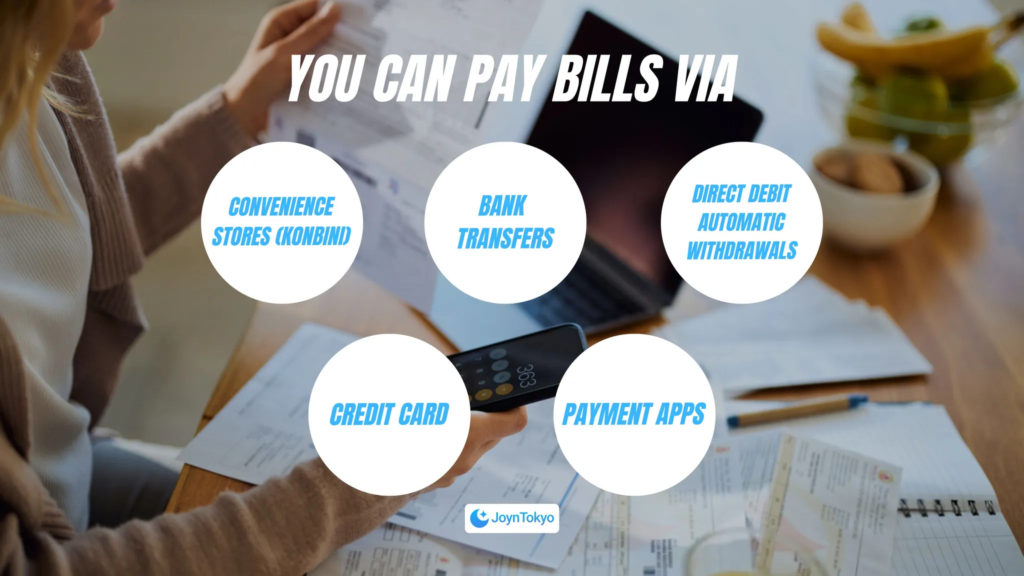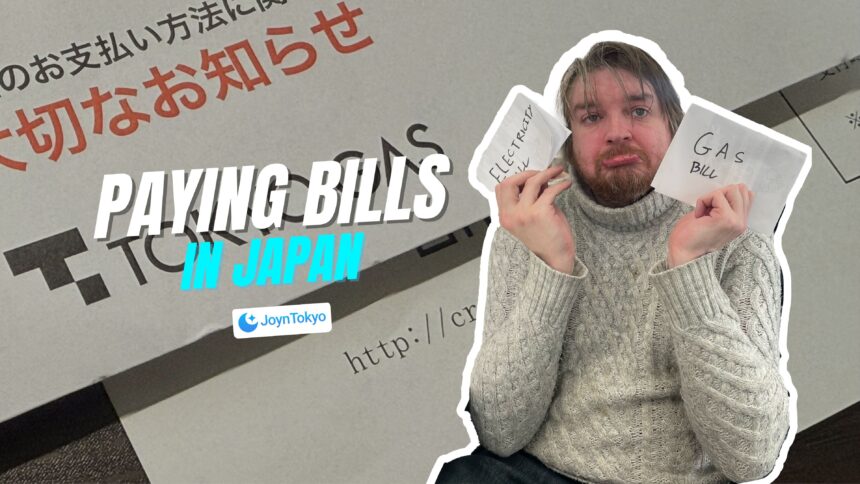When you get a new apartment, one of the most important things to do is set up your gas, water, and electricity bills. Luckily, the real estate agency I worked with was kind enough to send through the details necessary to get my lights turned one my water running, and my stove lit.
But one thing that might strike people new to Japan as odd is the initial preference for using postcards to send bills. Why is this the case? How is it helpful? And how do you change? That’s what I had to figure out, so let me take you through the process.
The Postcards
When I first moved in, and my apartment’s billing had been set up, I got many letters from my gas, water, and electricity companies telling me how grateful they were for my patronage, as is common in Japan. You only pay for what you use (as well as a small basic fee), one month after the usage. It was one month after I moved in that I started getting sealed postcards, telling me how much I owed, and where to pay my bills.
Almost all convenience stores (conbini) will let you pay your bills right at the counter. All you need do is show your postcard, and have cash ready. Be aware that some stores won’t let you pay by card, only cold, hard yen is accepted.

Mailing it in

But while this was initially somewhat charming, getting postcards at the end of there month, on different days, was getting tiresome. So what can be done about it?
At the time, this was fairly simple, but not as simple as I would have liked. I thought I could just go on the website and enter my bank details, but instead, I had to apply for — you guessed it! — another postcard.
After a few days, I received a letter with my postcard enclosed for my gas bill. On this postcard, I wrote my name, age, and bank account information, before affixing a sticker over these details so that it would be obscured from anyone unauthorized. It took another couple of weeks, but eventually, my gas company sent me a letter confirming that my bills would now be automatically deducted. At the time, this also came with a small ¥50 deduction, as the company was trying ti coax customers into direct debits. Alas, as of this year, this is no longer the case, given inflation and rising fuel costs.
I took a similar path towards by water bills (and treated myself to takeout when I received my confirmation letter), but I decided to let my electricity bills stay as postcards. Why? Well, partly to give myself an extra reason to pop out of the house on the weekends. This has been good, and it does make me stretch my legs, bug there are, of course, downsides.
Missed Payments

Twice before, I haven’t paid my electricity bill on time. Once was because I forgot the due date, and when I arrived at the conbini a day after the cut-off, I was told that this wouldn’t be accepted. Another time, I was on my way to pay, but my postcard fell out of my pocket en route, and I didn’t have anything to give.
In both cases, I received a second postcard — this time with an urgent red bacing — as well as text messages gruffly informing me that if I failed to pay, it would be possible for them to cut off my electricity. Needless to say, in both cases I said promptly when I got my second postcard. In my research, I found that it seems that in most cases cutting off power is the very last resort an electricity company will take, but it’s still not worth the risk.
This is in stark contrast to government bills: if you forget to pay your health insurance, pension, or even government taxes on time, conbini will always accept them, and the payments will be accepted by the government. Private companies, however, are less likely to be accommodating, and want the payment by the due date, without exceptions.
In Summary
One of the main irritations about living in Japan is the huge amount of junkman you get, from restaurants, aspiring politicians, and even religions. But if you get a postcard from your gas, water, or electricity company, make sure to pay it. Things can get difficult if you don’t, and it’s better to stay on top of your outgoings, both for your own wellbeing and to make sure you don’t get in trouble with the companies you rely on.









